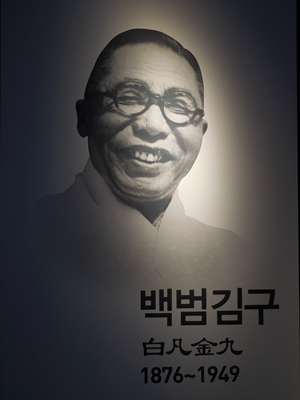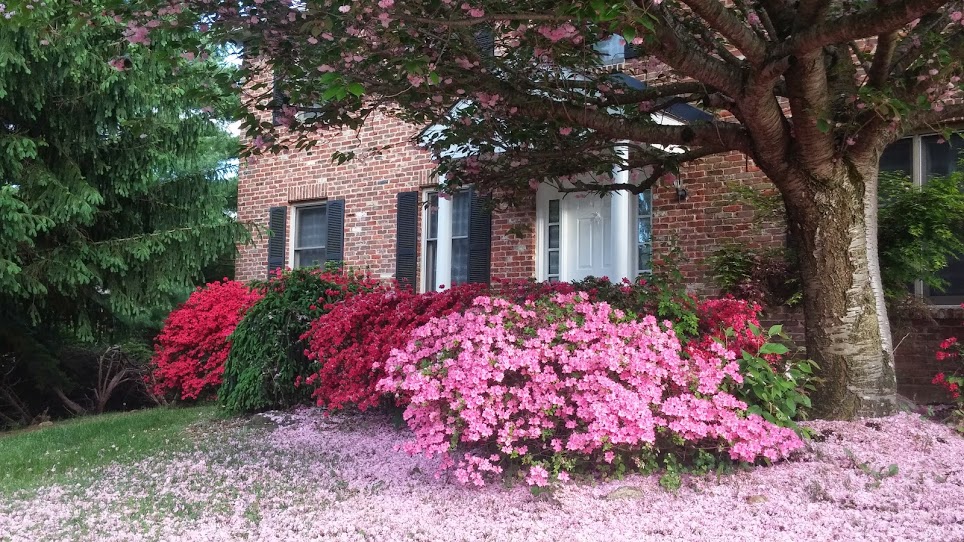내 가게에서 만나는 이웃들에게 오월 이야기를 전하다.
이따금 제가 일요일 아침에 보내 드리는 이메일 편지를 잘 읽고 있다는 인사를 받곤합니다. 이럴 때면 미처 제 속 깊은 감사를 다 드러내지 못하고 그저 감사하다는 말과 함께 수줍게 웃곤 합니다. 이 편지를 쓸 때마다 단 한사람에게 만이라도 일요일 아침에 좋은 기분을 갖게 할 수 있었으면 하는 생각을 한답니다.
오늘은 평소와는 다른 이야기를 하나 드립니다. 살며 누구에게나 아프고 어두운 기억들이 하나 둘 씩은 있을 것입니다. 제게도 아직 깊게 남아 있는 아픈 기억이 있답니다.
제가 이민을 오기 전 한국에서 살았던 1980년 5월의 기억입니다. 당시 한국은 18년 동안 오래 집권했던 박정희 대통령이 암살된 후 정국이 매우 혼란했답니다. 군사 쿠데타로 집권한 박이 죽자, 새로운 군부 쿠데타 세력인 전두환이 집권하기 위해 많은 사람들을 살상한 사건이 일어 났답니다. 한반도 서남쪽에 있는 광주시에서 일어난 사건이었습니다. 한국인들이 광주 민주화 운동이라고 부르는 사건입니다. (The Gwangju Uprising을 클릭하시면 이 사건에 대한 설명이 있습니다.)
저는 당시 학생이었고 광주가 아닌 서울에 살고 있었습니다. 저는 광주 민주화 운동과는 상관없는 학생 시위 사건으로 당시 군대가 장악한 조사기관에 잡혀가 모진 고문을 당했답니다. 저 뿐만 아니라 제 아버지도 체포되었답니다.
국가 또는 체제의 폭력에 대한 쓰리고 아프고 어두운 기억입니다. 이후 저는 미국으로 이민을 왔기에 그 곳에서 살며 민주주의 국가를 이루어 낸 제 친구들에게 늘 미안한 마음이 있답니다.
제가 틈틈이 꺼내 읽고 하는 책 가운데 심리학자이자 인지 과학자인 스티븐 핑커의 <우리 본성의 선한 천사>라는 책이 있답니다.
그는 여러가지 역사적 자료들을 제시하며 사람사는 세상은 폭력이 감소되고 있다고 주장합니다. 사람들 안에 공존하는 ‘천사’와 ‘악마’의 본성들 중 선한 본성이 악한 본성을 누르고 점차 덜 폭력적인 세상으로 나아가고 있다고 주장한답니다.
사람마다 다 생각이 다르니 핑커의 주장에 찬반이 있을 수 있을 것입니다. 다만 제가 그의 주장에 100% 동의하며 그렇게 사람들이 노력해야 마땅하다는 것이 있답니다.
<우리가 오늘날 이런 평화를 누리는 까닭은 옛 세대들이 당대의 폭력에 진저리치면서 그것을 줄이려고 노력했기 때문이다.>라는 그의 말입니다.
오늘은 조금은 엉뚱한 편지를 띄웁니다.
메모리얼 데이가 얼마 남지 않았습니다. 더 좋은 세상을 위해 자신을 희생한 이들을 생각해 보며…
당신의 세탁소에서
From time to time, I heard from customers that they were enjoyed reading my weekly letters which I had been sending on Sunday morning. Then, I just thanked them with a shy smile without disclosing my deep gratitude fully. When I write the letter, I always wish that it will have the reader, even if only one person, get good feelings on Sunday morning.
I’d like to tell you a story which may be somewhat different from the usual ones. We all may have a few dark and painful memories. I have a painful memory which remains deep in my mind.
It is a memory of May 1980 when I lived in Korea before I came to America. At that time, the political situation was in turmoil, after President Park, who had been in power for 18 years since seizing power in a military coup, was assassinated. Shortly after he died, a grave incident of killing and wounding many people happened in Gwangju, a city in the southwestern region of Korea. It was an incident which Chun Doo-hwan, a new leader in military power group, committed to seize power. It is now called “Gwangju Pro-democracy Movement” by Korean people. (If you click “The Gwangju Uprising,” you’ll find the information of the incident.)
At that time, I was a college student and was living in Seoul, not in Gwangju. I got arrested in a student demonstration, which was not related to the “Gwangju Pro-democracy Movement,” and had to suffer from brutal torture by the investigation agency which was under the control of the military power. Even my father was arrested, too.
It was a heartbreaking, painful and dark memory about the violence of the state or system. As I moved to America since then, in my mind there is still lingering a guilty feeling about those friends who stayed there and accomplished the democratization of Korea.
One of the books which I read from time to time is “The Better Angels of Our Nature: Why Violence Has Declined” by Steven Pinker who is a cognitive psychologist, linguist, and popular science author.
Pinker argues that violence has decreased over multiple scales of time and magnitude with a large volume of historical evidence. In his view, human nature comprises inclinations toward violence and those that counteract them, the “better angels of our nature.” With the application of the other better angels of our nature over the former, the world is moving toward a less violent one.
As everyone has their own opinion, there may be disagreement about Pinker’s arguments. But, there is one thing that I agree with him 100% percent. In addition, I think that all of us should do as he said. He said:
“…we enjoy the peace we find today because people in past generations were appalled by the violence in their time and worked to reduce it, and so we should work to reduce the violence that remains in our time.”
Today, I’ve told you a rather unusual story.
Memorial Day is not far from today.
With the thoughts about those who sacrificed for a better world.
From your cleaners.







